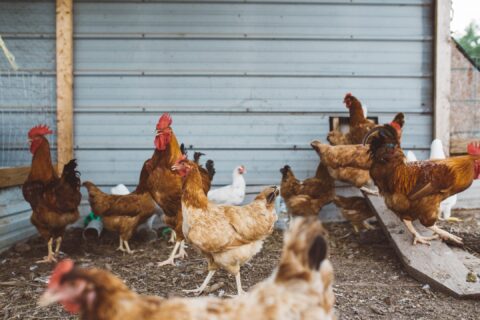Solutions
How Denver Could Become the First City to Ban Slaughterhouses
Food•7 min read
Explainer
Chickens and laying hens that have continuous access outside are considered “free-range” as labeled by the USDA. For egg-producing hens, this access must be available throughout their laying cycle. The outside area provided for the chickens is often enclosed by fencing and/or covered with netting.


Words by Jonathan Carey
Chickens and laying hens that have continuous access outside are considered “free-range” as labeled by the USDA. For egg-producing hens, this access must be available throughout their laying cycle. The outside area provided for the chickens is often enclosed by fencing and/or covered with netting.
Under the free-range label, chickens could live their entire lives outside. However, most birds will spend most of their time living inside the facility, where they live outside of cages with unlimited access to food and water. Since the USDA doesn’t have regulations on how often the chickens should spend in a natural setting, many facilities keep chickens in coops most of the day, only allowing them outside for a few minutes at a time.
Note: The USDA only applies this specific label to chickens, not other livestock.
Further material:
The Real Difference Between Pasture-Raised, Free-Range And Cage-Free Eggs. Huffington Post.